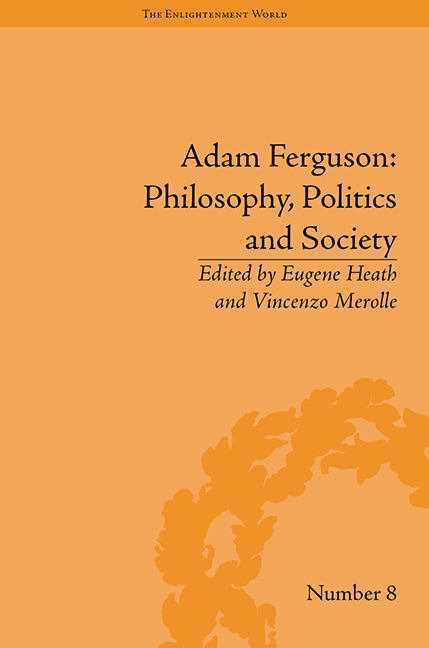2 - Adam Ferguson, the 43rd, and the Fictions of Fontenoy
from I - Life and Works
Summary
…fiction may be admitted to vouch for the genius of nations, while history has nothing to offer that is intitled to credit. The Greek fable accordingly conveying a character of its authors, throws light on an age of which no other record remains. The superiority of this people is indeed in no circumstance more evident than in the strain of their fictions…
On 11 May 1745, a British, Hanoverian and Dutch army under the command of King George II's second son, the Duke of Cumberland, was defeated by a French army under the command of Marshal de Saxe at the battle of Fontenoy. Today the battle is remembered as a striking example of European Enlightenment warfare, characterized by disciplined close-order fighting according to ‘civilized’ rules of engagement. As I will show however, much of this legacy rests on tales of battlefield civility that may never have taken place. Curiously, among the fictions of that day are some that relate to the purported presence at and participation in the battle by one of the Scottish Enlightenment's most prescient social and political theorists, Adam Ferguson.
Ferguson's thought was characterized by a distinctive awareness of the relationship between ‘fiction’ and ‘civilization’. Despite his obvious enthusiasm for civilization, he remained concerned that its further progress would render its obvious benefits, such as politeness, polished manners and discipline, entirely fictional. Civilization, he felt, may prove to be an all too shaky facade of politeness masking the corruption of virtue by luxury or indolence. I will explore this distinctive feature of Ferguson's thought by examining the two fictions of Fontenoy. Those fictions are first, that which relates to the legend of battlefield civility and second, that which centres on Ferguson's supposed presence at the battle. Both of these stories point us to a reconsideration of the role of fiction in Ferguson's complex appraisal of civilization.
- Type
- Chapter
- Information
- Adam FergusonPhilosophy, Politics and Society, pp. 25 - 44Publisher: Pickering & ChattoFirst published in: 2014



